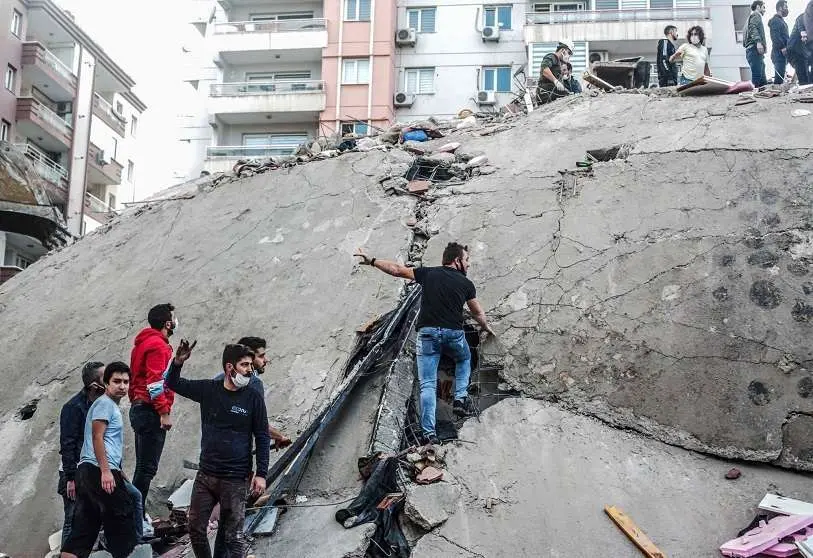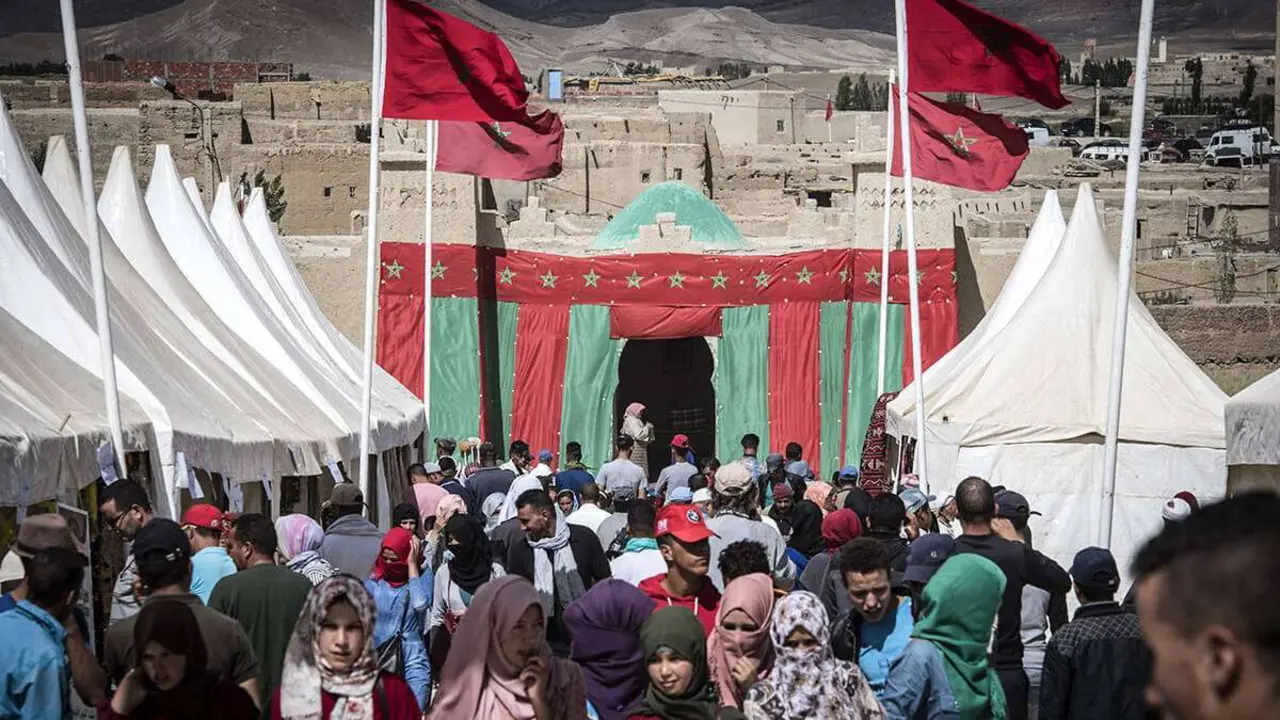The Turkish city of Izmir estimates that the earthquake left 180 people trapped

180 people have been trapped in the rubble of buildings destroyed by the earthquake that struck the Aegean region at midday on Friday, according to estimates by the city of Izmir, the Turkish city most affected by the quake that killed at least 27 people.
"According to our estimates, around 180 citizens have been left under the rubble, more or less. We warn citizens not to enter damaged buildings," the mayor of this city of four million people, Tunç Soyer, told Efe. The councillor did not specify at what point the estimate of people trapped by the collapsed buildings had been made.
At mid-morning this morning, the Minister of the Environment and Urban Planning, Murat Kurum, told the Turkish press that rescue teams had rescued some 100 people alive from the collapsed buildings, and recovered 25 bodies, all but one in Izmir.
The teams of AFAD, the Turkish public emergency service, have identified 17 collapsed buildings in that city and completed the work on nine of them, while the hard work continues on eight others.
At around midday this Saturday (10:40 GMT), experts managed to get four people from one family, with whom they had been in contact for hours, out of a collapsed building. The mother is 38 years old and has four children, but it has not yet been confirmed whether they all managed to survive.
Soyer told Efe that the greatest destruction from the 6.8-magnitude earthquake was in the Bayrakli district on the northern outskirts of the city, while other districts were more or less fine. "This is a popular urbanisation. We have observed this process of the advance of concrete which has destroyed nature. No Turkish city is prepared for an earthquake," criticised the mayor.
After construction began in the 1960s, Bayrakli experienced 20 years of rapid expansion as a cheap place of residence for families from rural areas or other regions of Turkey, neighbours of the city told Efe.
But, in addition, the neighbourhood sits precisely on one of the largest geological faults in the province, which has triggered the effects of the earthquake.
Already last January, the president of the Izmir College of Geologists, Alim Murathan, had pointed out to the press that the Barakli district was the most at risk in the province because it is located near the sea on a floodplain that lies on the fault.
The geologist added that, according to simulations carried out by his team, in the event of a 6.5-magnitude earthquake, one million people in Izmir would be left homeless and the death toll would reach "thousands".
Hopefully for the city, the epicentre of the 6.8-magnitude quake was located about 60 kilometres south of the city and the dimensions of the disaster have been smaller this time.








